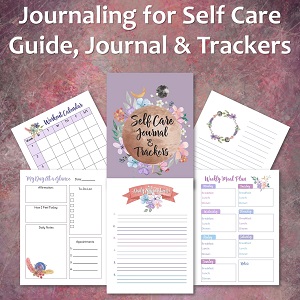Leila
What is Fun, Really?
The dictionary defines fun as…
“Enjoyment, amusement, or lighthearted pleasure”
According to Wikipedia…
“Fun is the enjoyment of pleasure, particularly in leisure activities. Fun is an experience — short-term, often unexpected, informal, generally not cerebral and generally purposeless. It is an enjoyable distraction, diverting the mind and body from any serious task or contributing an extra dimension to it. Although particularly associated with recreation and play, fun may be encountered during work, social functions, and even seemingly mundane activities of daily living. It may often have little to no logical basis, and opinions on whether or not an activity is fun may differ. A distinction between enjoyment and fun is difficult but possible to articulate, fun being a more spontaneous, playful, or active event. There are psychological and physiological implications to the experience of fun.”
There is a reason the old adage “Time flies when you’re having fun” has stuck around for so long.
Fun and health have a strong relationship! In fact, fun has an incredible impact on your physical, mental, and emotional health.
Unstructured play is serious business providing a feast for the senses, and nourishment for the body and spirit.
Patrick Bateson, professor of ethology at the University of Cambridge states that play is any type of activity that not serious or work related. Experts describe play as a chosen activity, which is self-directed, driven by imagination and non-literal, which means that its means are much more valuable than its ends. The rules of real play are not directed by any necessity but stem from the participants.
Peter Gray, psychologist and author of Free to Learn: Why Unleashing the Instinct to Play Will Make Our Children Happier, More Self-Reliant, and Better Students for Life notes, “One of the crucial defining characteristics of play is that is directed by the children or players themselves. It’s self-directed. Adult-directed games like sports, or activities in school where a teacher is telling children what to do, is not play by my definition.”
Kathleen Alfano, Child Development and Play Expert notes, “The genius of play is that it has profound benefits for all ages. Continuing through adolescence and adulthood, play contributes to being a well-rounded and joyful person.”
She further states, “Even though we are busy with everyday responsibilities and schedules, it is important to carve out time for leisure — if not daily, then at least throughout the week. Research shows that being playful is a key way to get more out of life.”
Play promotes flexibility of thought, creativity, feeling younger no matter your age and supports a free spirit offering you pure enjoyment without the pressure of needing structure, something we have enough of in our hectic daily lives.
12 Key Benefits of Fun
1 – Reduced Stress
Women often suffer from chronic stress due to leading hectic lifestyles and being overwhelmed by multiple responsibilities. Stress promotes the releases of cortisol, the stress hormone that is stimulated during the “fight or flight response.
Chronic stress and persistent levels of cortisol result in serious health complications for both the body and mind. Besides promoting chronic disease such as heart disease, stress can hinder cognitive function, cause emotional turmoil, lead to depression and greatly harm your quality of life.
Regularly taking the time to have fun, which promotes relaxation, and calm reduces levels of cortisol and alleviates stress that can wreak such havoc on your health.
One study that was published in the journal, Psychosomatic Medicine found that leisure activities not only lower stress levels and cortisol levels but also help reduce blood pressure. The study evaluated 1,400 people who engaged in various leisure activities, and those who spent the most time having fun saw the most health benefits.
2 – The Depression Connection
Depression affects women at twice the rate of men. Chronic stress promotes the constant presence of cortisol that can reduce levels of serotonin and dopamine, both of which are key markers of major depressive disorder. Having fun reduces stress and in this way helps lower risks for depression.
3 – Reduce Stress Eating
Stress eating is a common condition among women, and often emotional eating disorders are the result of undue stress levels and the lack of effective stress management skills. Cortisol further compounds the problem as it increases appetite and leads to overeating of high fat and high sugar junk food.
Fun can help to lower stress and acts as a key tool for keeping stress at bay to prevent stress eating and maintain a healthy weight. Besides saving your waistline, avoiding stress eating helps you avoid the many pitfalls seen in emotional eating, such as shame, guilt, and self-loathing.
4 – The Serotonin Rush
Regular fun helps to naturally increase the production of the neurotransmitter, serotonin. Serotonin regulates sleep and mood making fun a key way to enjoy a healthier life and an improved disposition.
5 – Emotional and Mental Health
Laughter and fun in general stops distressing emotions in their tracks. Think about it, how often have you felt anxious, angry, or sad while laughing?
Laughter is a refresh of the mind and spirit; it is relaxing and promotes energy while reducing stress. When you are refreshed, you have improved focus, better concentration, clarity of thought and better emotional health.
Laughter and fun help to distract you from distressing situations, and shifts perspective allowing for a psychological distance from feelings of overwhelm and conflict, which can have a profound effect on all facets of mental and emotional health.
6 – Better Coping Skills
Regularly engaging in fun activities helps you to better handle whatever life may throw at you. Fun activities are like money in the bank, as they help you have a nice reserve of calm that you can tap into to so you have more efficient coping skills to better handle any stressors that arise.
7 – Improved Libido
Very often women lose the desire for sex because of stress, overwhelm, and fatigue in their daily lives. In fact, busy women may begin to perceive their partners desires as just another demand on their energy and their time. This also happens to men as reported by the Kinsey Institute where researchers found stress to reduce libido in about 30% of male subjects.
Fun promotes relaxation, in fact, it may be the most relaxing activity around. Having fun regularly helps shed tension, stress and overwhelm, renewing your desire for intimacy.
8 – Enhanced Immunity
Laughter boosts the immune system and boosts levels of infection-fighting antibodies to help the body resist and fight disease.
9 – More Energy
Having fun helps boost energy levels that are drained by tension, stress, over work, overwhelm, and fatigue. When you take the time to relax and detract from “serious,” it deflects from these conditions and renews energy levels, encouraging mental clarity and physical capability.
10 – Better Memory and Concentration
Since fun decreases stress and cortisol levels and promotes serotonin production, it helps to improve your memory.
Consider how a super busy life, hectic days, and running on autopilot result in common forgetfulness. Having fun regularly, helps alleviate these issues, restoring your mental energy to improve memory and concentration.
11 – Improved Human Connections
Having fun with other people supports and promotes meaningful relationships and a powerful sense of connection, which experts agree is one of the most fundamental of human needs.
Furthermore, numerous studies have shown that social connections are key in aging, helping to improve the mental, physical, and emotional health of the elderly along with the overall process of aging.
Laughter for Wellness
Laughter promotes the release of the body’s natural feel good hormones, known as endorphins that help promote a general feeling of wellbeing. Studies have shown that regularly engaging in laughter can actually extend life span.
A study from Norway concluded that subjects who had a strong sense of humor lived longer than people who did not laugh much, the effect was especially significant in study subjects who were fighting cancer.
The Key Benefits of Laughter
- Reduce stress
- Boosts the body’s immunity functions
- Relaxes muscles and helps alleviate aches that result from tension
- Improves positive thinking and optimism that offer a wealth of health benefits for mind, body and spirit
- Lightens the impact or perception of any immediate stress and problems you may have
- Helps reduce risks for heart disease
- Makes you happier and more joyful
- Eases tension
- Reduces anxiety
- Promotes happiness and better mood
- Helps make stronger relationships
- Makes you attractive to others
Laugh More Often
You don’t have to wait for spontaneous occurrences of laughter, you can create them!
- Watch comedies (movies and television shows)
- Get a joke of the day calendar
- Engage with funny people
- Go to a comedy club
- Read the funny pages in the newspaper
- Spend time with kids
- Do silly things
- Play fun jokes on your friends, family and co-workers
- Read funny books
Final Thoughts
Kids know the value of fun, instinctively and naturally, but as we grow into adulthood, we lose touch with this simple concept as we get sucked into all the responsibilities and seriousness of life.
Making time for fun is serious business; your health depends on it.
Now, go have some fun!
 A substantial number of people are caught in a self-inflicted trap trying desperately to please others. This takes away their true purpose in life with wasted efforts to keep up with what is expected of them. It is not only sad but also limits their personal experiences to what third parties think.
A substantial number of people are caught in a self-inflicted trap trying desperately to please others. This takes away their true purpose in life with wasted efforts to keep up with what is expected of them. It is not only sad but also limits their personal experiences to what third parties think.
Above everyone’s opinion, yours matters the most as it defines your scope as a person. This has a self-fulfilling effect when compared to making life decisions based on what others think is right for you. Relying on your opinion first gives you a self-concept which becomes your basis for confidence.
A self-concept puts everything into perspective with your character being in tune with your self-worth and the range of personal abilities that adequately equip you in your different endeavors in life. This is the best case scenario for a balanced individual but those who ride along with other people’s expectations clearly lack a handle on their lives. Continue reading
 Some people display different personas in different setups such as the workplace, social gatherings, at home and with friends. Others are consistent with their character in any given scenario regardless if they are addressing their superior, a stranger, a child or a close friend.
Some people display different personas in different setups such as the workplace, social gatherings, at home and with friends. Others are consistent with their character in any given scenario regardless if they are addressing their superior, a stranger, a child or a close friend.
How authentic you are is really all about just how in touch you are with your true self and you should feel at liberty to project that all the time.
How to Get in Touch with the Real You
To live an accomplished life that fulfills you entirely requires you to master your true identity. This is a skill that demands a high level of dedication to yourself but in the end, it equips you with the tools to seek anything you would need in life. Continue reading





